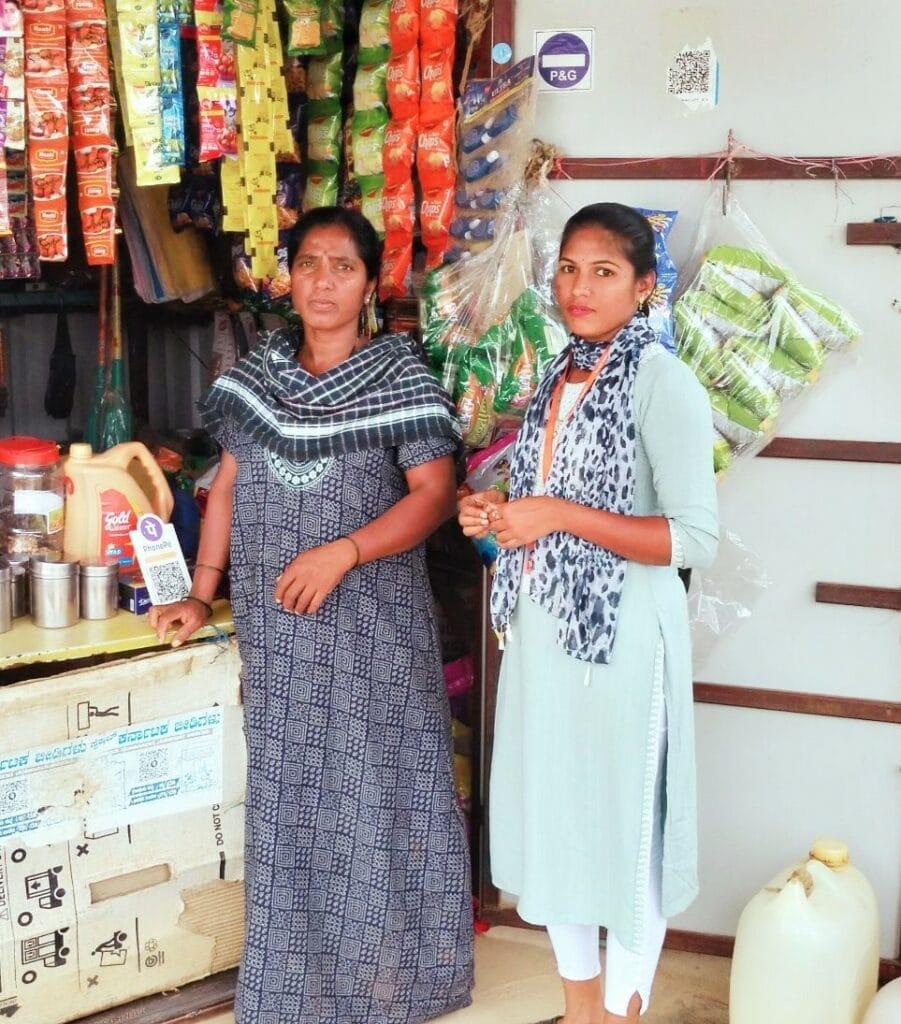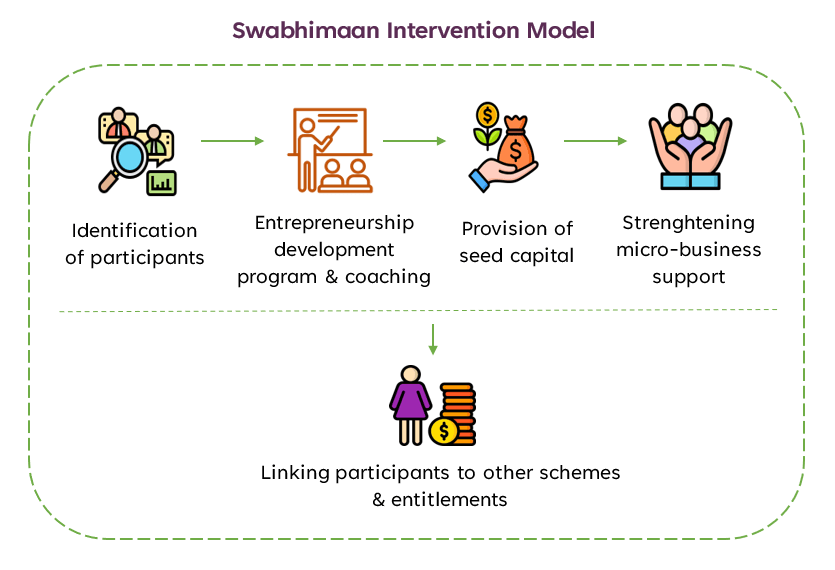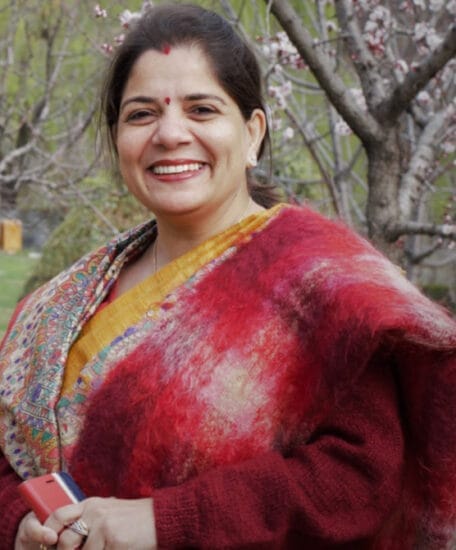News > Blog
Promoting Women’s Entrepreneurship to Drive Economic Growth: Perspectives from India
Published 03/27/2024 by Global Communities

By Irina Sinha, Project Concern International (PCI) India
India has grown into the fifth largest economy in the world. The growth of the country’s gross domestic product (GDP) indicates the existence of a plethora of opportunities that people can leverage to partake in the economy. Over the past decade, there has been a notable increase in the rate of women’s labor force participation. In 2023, this rate stood at nearly 33% as compared to 27% in 2013.
It is pertinent to pause and reflect where the growth in women’s labor force participation is coming from. Approximately 51% of women entrepreneurs and businesswomen in India earn less than USD 120 per month. Yet the recent Periodic Labor Force Survey (PLFS) conducted by the government of India reveals an increase in self-employment among working women, despite dwindling average earnings. This trend partly arises from the pandemic-induced income shocks, prompting women to supplement family incomes and highlighting their pivotal role in stabilizing household finances. According to PLFS data from 2021 to 2022, women are much less likely to work then men, but they are more likely to be self-employed than men (60% vs. 51%). Notably, 60% of working women aged 15 to 59 are self-employed, with around 45% operating their own enterprises. This highlights the urgent need for tailored support to businesswomen so that they can sustain their entrepreneurial journeys.
Reducing Gender Barriers to Entrepreneurship
A journey to entrepreneurship is a complex one, and one that requires sufficient investment of effort, time and money. Women, especially those from marginalized backgrounds, face a myriad of sociocultural and material barriers to their economic advancement, including rigid gender norms, limited education and a lack of mentorship.

It is important to recognize that women entrepreneurs are not a homogenous group. Efforts to support them must be tailored to their needs based upon their unique skills and opportunities, and the specific barriers they face. The best approach is to understand the existing systems and structures – formal and informal – and then both work within these systems to support women entrepreneurs and advocate for systemic changes, including by challenging gender norms and barriers. The key aspects of such a model must include:
- Improving women’s business skills through capacity building.
- Formalizing women’s enterprises where appropriate.
- Enhancing access to schemes and policies of the government.
- Increasing access to finance and financial knowledge.
- Introducing technological solutions to increase productive efficiency.
- Enhancing women’s access to value chains and working to make them more gender-responsive.
- Developing and strengthening peer support networks.
These types of interventions require facilitators to invest time in working directly with women while introducing normative and social behavior change strategies. Projects must be tailored to support participants based on their skills, needs and opportunities. While the degree of customization may vary, tailored and segment-specific methodologies have greater potential to meet women where they are and deliver impact.
Swabhimaan: Promoting Entrepreneurship & Boosting Self-Esteem
Project Concern International (PCI) India, which is an independent organization localized by Global Communities, has tackled these challenges with its Swabhimaan project. Swabhimaan, which means self-esteem or self-respect in Hindi, aimed to boost women’s incomes and workforce participation through scalable models. This integrated entrepreneurship initiative has supported 15,000 women from low-income households in urban slums and rural areas to thrive as micro-entrepreneurs. The approach includes three distinct entrepreneurship development models:
- Assistance to individual women as they enhance their autonomy and build livelihoods, including through training, coaching and seed capital.
- Enterprise support services for businesses established by the urban poor within the Self-Help Group ecosystem.
- Leveraging government contracts to enhance the role of rural women collectives in market penetration.

PCI India implemented the Swabhimaan project between October 2022 and March 2024, and we are proud of the following achievements:
- 97% of participants are running fully operational businesses since the start of the intervention.
- 90% of participants increased business revenues and income.
- 30% of enterprises accessed institutional financial support mechanisms.
- 52% of enterprises adopted sound financial practices and improved decision-making.
- 80% of enterprises introduced automation of business processes.
- Women with existing businesses stated that a deeper understanding of business operations coupled with implementation of new accounting practices has enabled them to efficiently manage inventory, reduce wasteful expenditure and re-invest revenues into their businesses.
We have learned that entrepreneurship development requires diverse strategies and engagement with multiple stakeholders. It is not always easy but building entrepreneurial aspirations among women from marginalized and rural communities has the potential to generate local employment, increase economies of scale and improve women’s control over resources. This will subsequently lead to a greater investment in the social indicators of health, nutrition and education. Through these collaborative efforts we are working to bring forward inclusive, democratic and equitable change.

About the Author
Irina Sinha is a Director for Strategic Insights and Systems at PCI India. She has over 25 years of experience in the social development of India, especially in the state of Bihar. Recently, Irina spoke at Global Communities’ event, “Fostering Women’s Entrepreneurship at Every Stage: A Cross-Regional Exchange.”






